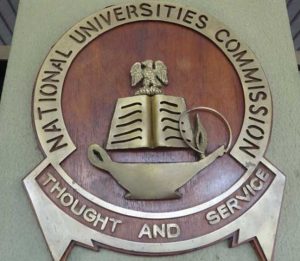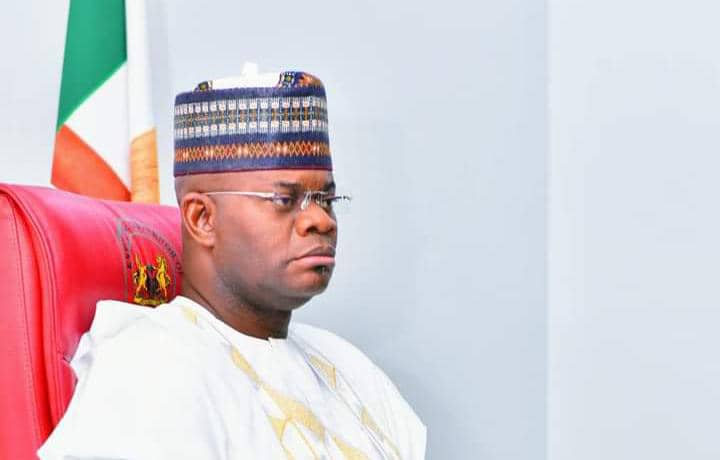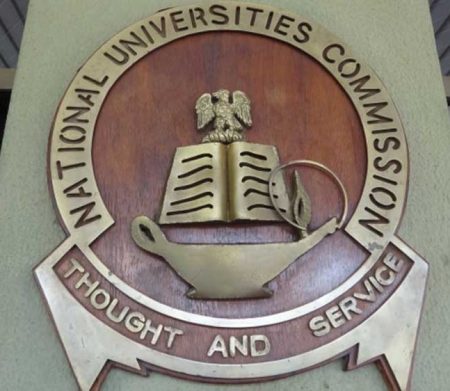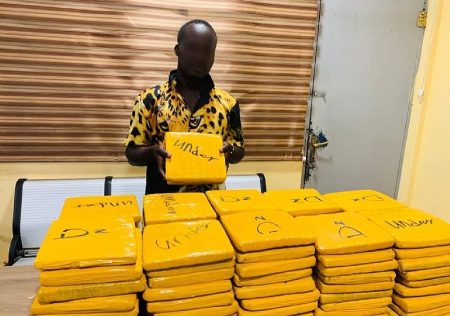The ongoing trial of former Kogi State Governor, Yahaya Bello, on charges of money laundering took a procedural turn on Friday, June 23, 2023, at the Federal High Court in Abuja. The crux of the disagreement between the prosecution, represented by Kemi Pinheiro of the Economic and Financial Crimes Commission (EFCC), and the defense, led by Joseph Daudu, revolved around the cross-examination of a witness presented by the EFCC. The witness, Nicholas Ojehomon, an internal auditor at the American International School Abuja (AISA), became the focal point of a legal tussle concerning a previously admitted document related to school fees paid by the Bello family to AISA. This seemingly minor issue escalated into a significant procedural debate, ultimately leading to an adjournment to allow for more comprehensive legal arguments.
The controversy stemmed from a judgment from the Federal Capital Territory High Court concerning the payment of school fees by the Bello family, specifically involving Ali Bello, the former Chief of Staff to the governor and Bello’s nephew. This judgment, admitted as evidence on Thursday despite objections from the EFCC, became the basis for the prosecution’s desire to cross-examine its own witness. Pinheiro argued that the document’s relevance to the case necessitated further questioning of Ojehomon. The defense, however, vehemently objected, asserting that the EFCC must first declare its witness hostile before undertaking a cross-examination, as stipulated by legal procedure.
Daudu, Bello’s lead counsel, argued that the prosecution’s attempt to cross-examine its own witness without declaring him hostile was legally unsound. He maintained that established legal procedure mandates such a declaration before a party can cross-examine its own witness. This procedural requirement ensures fairness and prevents parties from undermining their own witnesses’ testimony if it proves unfavorable to their case. Daudu emphasized that questioning one’s own witness in a manner suggestive of cross-examination without a prior declaration of hostility is procedurally irregular and “unknown to law.”
The prosecution, however, contended that the principle of fair hearing, as guaranteed by Section 36 of the Nigerian Constitution, entitled them to examine the admitted judgment. Pinheiro argued that preventing the prosecution from questioning the witness about a relevant document would infringe on their right to a fair hearing. He maintained that the defense, having successfully introduced the document into evidence, should not be allowed to subsequently restrict the prosecution from addressing its contents during the examination of the witness. This, according to Pinheiro, would allow the defense to manipulate the proceedings by introducing potentially beneficial evidence while simultaneously shielding it from scrutiny.
Justice Emeka Nwite, presiding over the case, attempted to navigate the impasse by initially allowing Pinheiro to re-examine the witness, cautioning him against phrasing questions that resembled cross-examination. However, as the re-examination proceeded, the prosecution’s questions veered into territory the defense considered cross-examination, prompting further objections. Justice Nwite recognized the developing ambiguity surrounding the proper procedure in this situation and requested detailed arguments from both parties to clarify the legal basis for their respective positions.
The defense argued that the prosecution’s approach, referencing the admitted document and directing the witness to specific paragraphs without first establishing a connection to the witness’s prior testimony, constituted a novel and legally unsupported procedure. They insisted that proper procedure required establishing how the document related to the witness’s initial testimony, the defense’s cross-examination, and any ambiguities that needed clarification. The prosecution countered by explaining that their initial objection to the admissibility of the document was based on the fact that it was not authored by the witness. Having conceded to its admission, they argued it would be unjust to now be prevented from questioning the witness about its contents. They claimed this would be akin to allowing the defense to exploit a procedural loophole to their advantage.
Justice Nwite, acknowledging the complex procedural issues raised by the dispute, directed both parties to present comprehensive written submissions outlining their legal arguments. This decision underscores the importance of adherence to proper legal procedure in ensuring a fair trial. The judge’s request for further submissions recognizes the need for clarity and consistency in applying procedural rules, particularly in a case with significant implications. The trial was adjourned to June 26, 27, and July 4 and 5 for the presentation of these arguments and the continuation of the trial. This adjournment will provide the court with ample time to consider the arguments from both sides and issue a ruling that clarifies the permissible scope of questioning regarding the admitted document, ensuring a fair and just proceeding for all parties involved.














